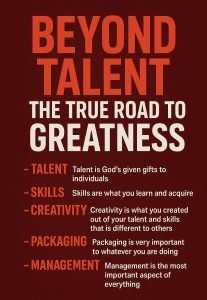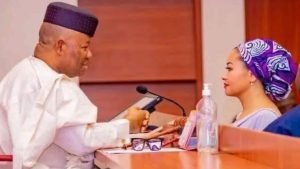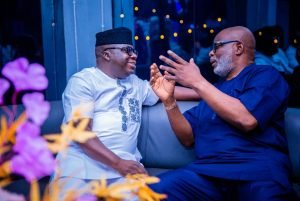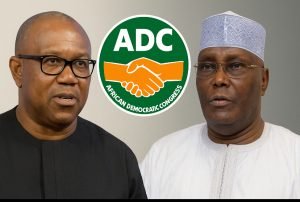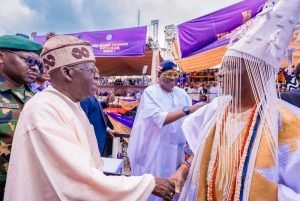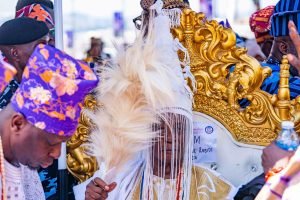Inside the ADC-Obidient Rift and the Opposition’s 2027 Gamble
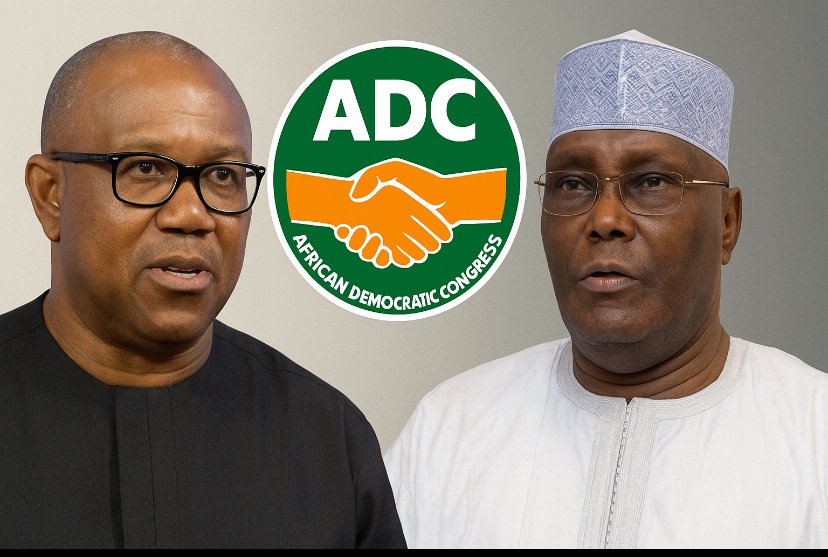
By Editorial Team
When the African Democratic Congress (ADC) announced last week that all members of the opposition coalition must resign from their existing political parties and fully embrace its platform, the decision was meant to bring clarity. Instead, it has opened political rifts in Nigeria’s opposition.
The directive has pitched the ADC against the Obidient Movement, the grassroots political force behind Peter Obi’s 2023 presidential bid and raised fresh doubts about whether Nigeria’s fractured opposition can truly unite to challenge President Bola Tinubu in 2027.
The Directive That Sparked Storm
The ADC, which has been adopted as the official vehicle for the coalition, said its decision followed months of hesitation by key figures.
National Publicity Secretary Bolaji Abdullahi conveyed the caucus resolution in Abuja. “Though final order has been given to all members to resign membership of other political parties, the caucus was silent on the timeline.
“All the presidential aspirants have agreed to support whoever wins the primaries,” he explained.
For a coalition struggling to project unity, the move seemed decisive. Former Vice President Atiku Abubakar resigned from the PDP as far back as July 14, but more than two months later, he has yet to officially pick up an ADC membership card.
Peter Obi has been consulting quietly with political allies, with his final declaration not expected until November. For ADC chieftains, such hesitation risks derailing momentum.
The Obidient Pushback
But no sooner had the ink dried on Abdullahi’s statement than the Obidient Movement fired back.
Dr Yunusa Tanko, National Coordinator of the movement, warned that Obi would not be stampeded into abandoning the Labour Party for the ADC.
In his words: “Obi is not desperate to be President of Nigeria. His ultimate mission is to see Nigeria work—to lift people out of poverty, to improve the economy, education, healthcare, and security. These were the reasons he joined the coalition in the first place.”
Tanko also raised deeper questions about fairness and equity within the coalition. “Why does it appear that the ADC is changing resolutions already adopted by the coalition, particularly on zoning and sharing of principal offices?” he queried.
The Obidients, who proved in 2023 that they are not just a youth movement but a formidable political bloc, see the directive as premature and possibly manipulative. Their warning is clear: Peter Obi will consult his base first, and no party caucus can dictate his political future.
ADC Leaders Hit Back
The ADC leadership has not taken the criticism lightly. Abdullahi responded bluntly: “It is either that they did not read the story, or they have a pre-conceived position, because there was nowhere we compelled anybody to join the party. We just said that every member of the coalition must leave their original party. We have consistently maintained that Peter Obi and Nasir El-Rufai were given prerogatives, so I wonder where their outburst is coming from.”
Other leaders have been less diplomatic. Lagos ADC chieftain Tai Benedict dismissed the Obidients as overreaching. He said, “Obidients can’t have it the way they had it in 2023.
“It will be difficult for Obi to be Nigerian president at the moment. Obi should come out bold enough to declare for ADC as a member. If he leaves the Labour Party, Obidients will follow him. LP doesn’t need him.”
The message is unmistakable: the ADC wants to lead the coalition, not negotiate endlessly with political celebrities.
The Bigger Picture: Unity or Bust
At the heart of this drama is a familiar Nigerian dilemma: opposition unity.
The 2015 merger that produced the All Progressives Congress (APC) was tough but ultimately successful because its leaders shared a single priority, removing the PDP from power.
Today’s coalition is less coherent. The ADC, while offering structure, lacks the grassroots energy of the Obidient Movement or the political weight of Atiku’s network.
The coalition’s gamble is that forcing everyone under the ADC umbrella will create the kind of clarity needed to compete with Tinubu’s incumbency. But this strategy risks alienating Obi’s base, arguably the most motivated bloc in Nigerian politics today.
Obedients perceived Obi as one who seeks power to reform, not enrich. Any attempt to strong-arm him into a political arrangement risks eroding that moral capital.
Obi, Atiku and the 2027 Equation
For Atiku, the directive complicates his comeback. Having quit the PDP, he has kept Nigerians guessing about his next move. But without a strong structure like the ADC’s, his presidential dream could fizzle.
Obi faces a tougher choice. If he stays with the Labour Party, he risks isolating himself from the coalition’s larger machinery. If he joins the ADC, he risks losing his movement’s independence. Either way, his decision will shape the 2027 contest. The ADC knows this. Hence the pressure.
What This Means for Nigeria
Nigeria’s democracy is entering a new phase where coalitions matter more than ever. Tinubu’s APC is formidable and without a united opposition, 2027 may be another easy ride for the ruling party.
But unity cannot be built on diktats alone. The ADC directive, while logical on paper, feels heavy-handed in practice. It presumes that politicians like Obi can be ordered to abandon their bases without consultation. That misreads the nature of Obidients new political awakening, where voters, not party caucuses hold the real power.
Editorial Verdict
The ADC-Obidient clash is not just about party membership cards; it is about the soul of Nigeria’s opposition. If the coalition insists on rigid directives, it risks breaking before it even begins. If the Obidient Movement insists on total autonomy, it risks isolating itself.
What the opposition needs is compromise: a coalition that respects Obi’s movement, harnesses Atiku’s experience and uses the ADC’s platform as a bridge rather than a hammer.
The stakes are enormous. A fractured opposition will guarantee Tinubu a second term. The question is whether Nigeria’s opposition leaders can rise above ego, suspicion and ambition or whether history will repeat itself.
